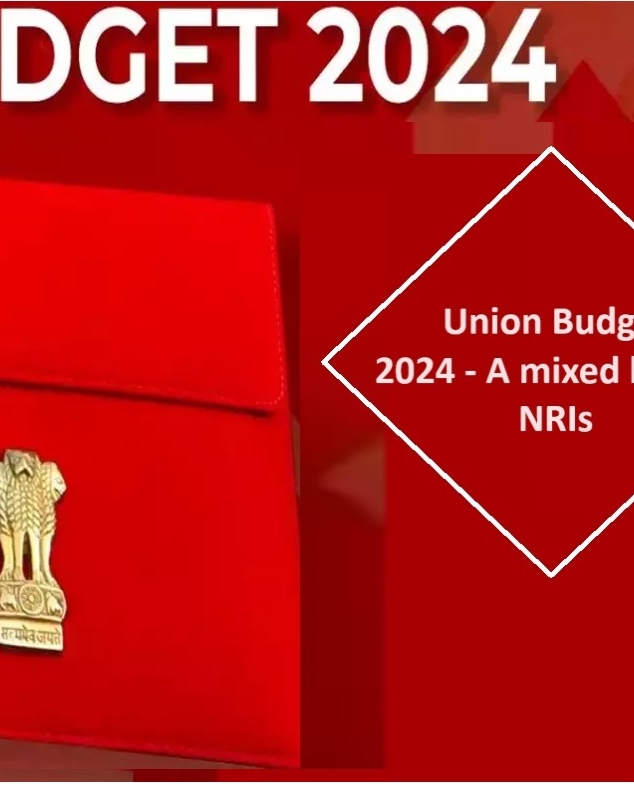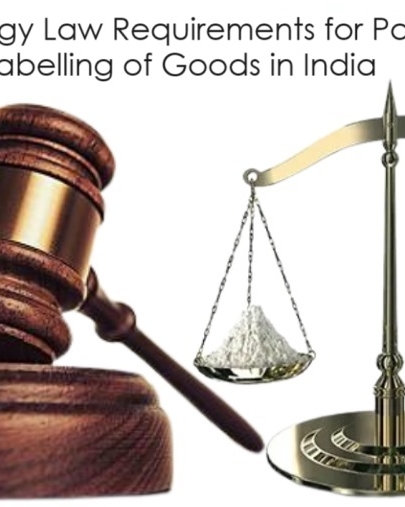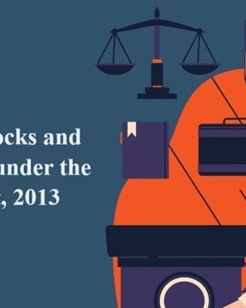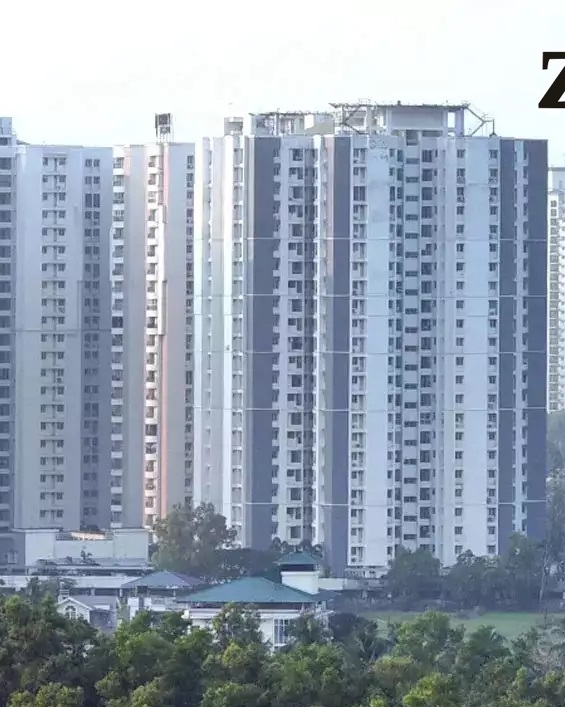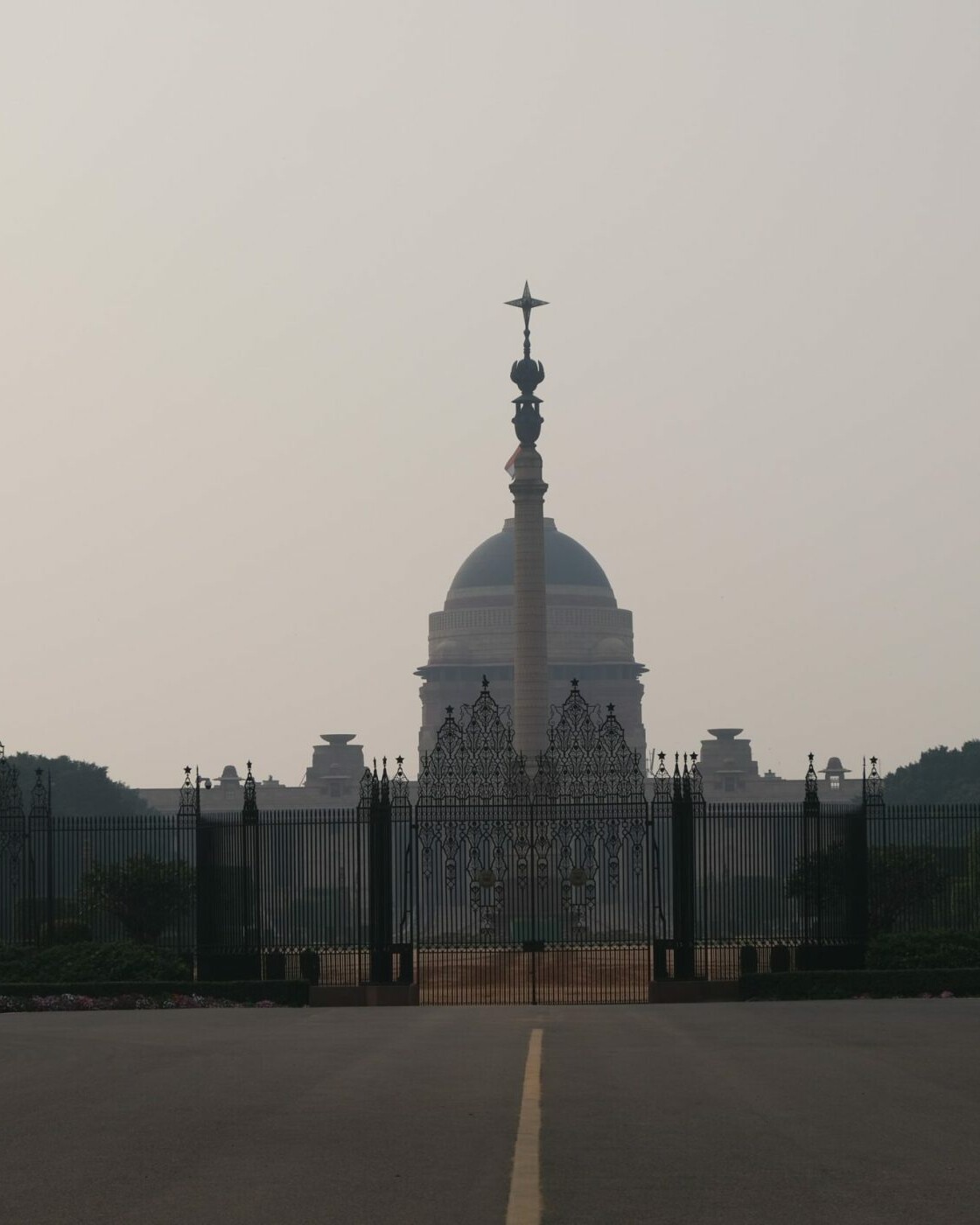
Highlights:
Corporate Brief
- Notification dated 03.07.2023 issued by Securities and Exchange Board of India (“SEBI”) on Securities and Exchange Board of India (Ombudsman) (Repeal) Regulations, 2023.
- Securities and Exchange Board of India (Alternative Dispute Resolution Mechanism) (Amendment) Regulations, 2023 and Circular dated 31.07.2023 issued by SEBI regarding the online resolution of disputes in the Indian securities market.
- Circular dated 05.07.2023 issued by SEBI regarding the amendments to guidelines for the preferential issue and institutional placement of units by a listed REIT or InvIT.
- Circular dated 13.07.2023 issued by SEBI regarding disclosures of material events/ information by listed entities under Regulations 30 and 30A of SEBI (Listing Obligations and Disclosure Requirements) Regulations, 2015.
- Circular dated 27.07.2023 issued by SEBI regarding mandating Legal Identity Identifier (LEI) for all non-individual Foreign Portfolio Investors (FPIs).
RERA Brief
- Circular dated 05.07.2023 issued by Chhattisgarh-RERA regarding the clarification on publicity/ advertisement made by the promoters of CG-RERA registered real estate projects.
- Public Notice dated 06.07.2023 issued by Kerala-RERA concerning directions and guidelines with respect to the complaints filed under section 31 of the Real Estate (Regulation & Development) Act, 2016.
- Office Order dated 19.07.2023 issued by the Bihar-RERA regarding Standard Operating Procedure (SOP) for the extension of projects beyond the specified period of extension for completion.
- Notification dated 19.07.2023 issued by Karnataka-RERA regarding the mandatory deposit of money into the RERA project designated bank account borrowed by the promoter through mortgage of the project land and the utilization of the same project development purposes.
- Circular dated 19.07.2023 issued by the Chhattisgarh-RERA in association with the extension of time for additional disclosure in real estate project registration.
- Circular dated 19.07.2023 issued by the Chhattisgarh-RERA regarding the clarification issued on the extension of the real estate project registration.
- Notice dated 25.07.2023 issued by Bihar-RERA regarding real estate agents only to facilitate the sale or purchase of any plot, apartment or building only in RERA-registered projects.
- Circular dated 27.07.2023 issued by the Chhattisgarh-RERA regarding the submission of quarterly updates (April 2023-June 2023) of the real estate projects on the CG-RERA web portal.
NCLT Brief
- Whether the appellant is mandatorily required to file an application seeking leave to appeal along with the appeal before the NCLAT who was not a party to the proceedings before the NCLT?
Litigation Brief
- “Creditor’s power under IBC against personal guarantor”
- Outstanding payments of a “Sub-Contractor” cannot be deferred in perpetuity by the contractor on the ground of non- payment by the principal employer
Corporate Brief
Securities and Exchange Board of India (Ombudsman) (Repeal) Regulations, 2023.
- SEBI vide its notification dated 03.07.2023 notified the Securities and Exchange Board of India (Ombudsman) (Repeal) Regulations, 2023. Vide the said notification, the Securities and Exchange Board of India (Ombudsman) Regulations, 2003 has been repealed.
- However, the repeal of the Securities and Exchange Board of India (Ombudsman) Regulations, 2003 will not affect:
- the previous operation of the said regulations or anything done or omitted to be suffered therein;
- any right, privilege, obligation, or liability acquired or accrued or incurred under the said regulations;
- any penalty or punishment incurred in respect of any contravention or offence committed under the said regulations;
- any investigation, legal proceedings, or remedy in respect of any such right, privilege, obligation, liability, penalty or punishment as aforesaid.
Securities and Exchange Board of India (Alternative Dispute Resolution Mechanism) (Amendment) Regulations, 2023. And Circular dated 31.07.2023 issued by SEBI regarding the online resolution of disputes in the Indian securities market.
- SEBI vide its notification dated 03.07.2023 has introduced a dispute resolution mechanism that includes mediation and/or conciliation and/or arbitration in accordance with specified procedure for disputes arising under the following regulations:
- Securities and Exchange Board of India (Merchant Bankers) Regulations, 1992,
- Securities and Exchange Board of India (Registrars to an Issue and Share Transfer Agents) Regulations, 1993,
- Securities and Exchange Board of India (Debenture Trustees) Regulations, 1993,
- Securities and Exchange Board of India (Mutual Funds) Regulations, 1996,
- Securities and Exchange Board of India (Custodian) Regulations, 1996,
- Securities and Exchange Board of India (Credit Rating Agencies) Regulations, 1999,
- Securities and Exchange Board of India (Collective Investment Schemes) Regulations, 1999,
- Securities and Exchange Board of India {KYC (Know Your Client) Registration Agency} Regulations, 2011,
- Securities and Exchange Board of India (Alternative Investment Funds) Regulations, 2012,
- Securities and Exchange Board of India (Investment Advisers) Regulations, 2013,
- Securities and Exchange Board of India (Research Analysts) Regulations, 2014,
- Securities and Exchange Board of India (Infrastructure Investment Trusts) Regulations, 2014,
- Securities and Exchange Board of India (Real Estate Investment Trusts) Regulations, 2014,
- Securities and Exchange Board of India (Listing Obligations and Disclosure Requirements) Regulations, 2015,
- Securities and Exchange Board of India (Foreign Portfolio Investors) Regulations, 2019,
- Securities and Exchange Board of India (Portfolio Managers) Regulations, 2020, and
- Securities and Exchange Board of India (Vault Managers) Regulations, 2021
The specific amendments carried out to the respective regulations under the said Notification may be referred to at the link below:https://www.sebi.gov.in/legal/regulations/jul-2023/securities-and-exchange-board-of-india-alternative-dispute-resolution-mechanism-amendment-regulations-2023_73454.html
- SEBI vide its circular dated 31.07.2023 provides for a streamlined process of online resolution of disputes in the Indian securities market in furtherance of the interests of investors and consequent to the gazette notification dated 03.07.2023 of SEBI.
- Read more at the following web link:
https://www.sebi.gov.in/legal/circulars/jul-2023/online-resolution-of-disputes-in-the-indian-securities-market_74794.html
Circular dated 05.07.2023 issued by SEBI regarding amendments to guidelines for the preferential issue and institutional placement of units by a listed REIT or listed InvIT.
- Pursuant to feedback received, SEBI issued 2 (two) circulars, both dated 05.07.2023 for amending the guidelines dated 27.11.2019 on REITs and guidelines dated 27.11.2019 on InvITs, which set forth guidelines for the preferential issue and institutional placement of units by listed REITs and listed InvITs, respectively.
- As per the circular dated 05.07.2023, Clause 2 of Annexure II of SEBI circular dated 27.11.2019 related to guidelines for the preferential issue and institutional placement of units by listed REITs has been modified as follows:
- The institutional placement will occur at a price that is no lower than the average high and low closing prices of units from the same class, as quoted on the stock exchange during the two weeks preceding the specified date.
- The REIT may offer a discount of not more than five per cent on the price, subject to the approval of unitholders through a resolution.
- “Relevant date” for the purpose of clauses related to institutional placement shall be the date of the meeting in which the board of directors of the manager decides to open the issue.
- It may be noted that similar modifications have been carried out to Clause 2 of Annexure II of SEBI circular dated 27.11.2019 related to guidelines for the preferential issue and institutional placement of units by listed InvIT.
Circular dated 13.07.2023 issued by SEBI regarding disclosure of material events/ information by listed entities under Regulations 30 and 30A of SEBI (Listing Obligations and Disclosure Requirements) Regulations, 2015 (“LODR Regulations”).
- SEBI, vide its circular dated 09.09.2015, had specified the details that need to be provided while disclosing events given in Part A of Schedule III of SEBI LODR Regulations, and guidance on when an event/ information can be said to have occurred. In order to bring more transparency and to ensure timely disclosure of material events/ information by listed entities, amendments to the LODR Regulations were deliberated by the Primary Market Advisory Committee (PMAC) of SEBI and pursuant to approval by the Board, amendments to the LODR Regulations were notified.
- SEBI, vide circular dated 13.07.2023, has introduced four annexures with respect to disclosure requirements under Regulations 30 and 30A (inserted by the aforesaid amendment) of LODR Regulations, as given below:
- Annexure I specifies the details that need to be provided while disclosing events given in Part A of Schedule III;
- Annexure II specifies the timeline for disclosing events given in Part A of Schedule III;
- Annexure III provides guidance on when an event/ information can be said to have occurred; and
- Annexure IV provides guidance on the criteria for the determination of the materiality of events/ information.
- The said circular has come into force from 15.07.2023.
Circular dated 27.07.2023 issued by SEBI regarding mandating Legal Entity Identifier (LEI) for all non-individual Foreign Portfolio Investors (FPIs).
- SEBI, vide its circular dated 27.07.2023, has mandated the requirement of providing LEI details for all non-individual FPIs. Presently, FPIs are required to provide their LEI details in the Common Application Form (CAF), used for registration, KYC and account opening of FPIs on a voluntary basis.
- As per the said circular, all existing FPIs (including those applying for renewal) that have not already provided their LEIs to their DDPs shall do so within 180 days from the date of issuance of this circular, failing which their account shall be blocked for further purchases until LEI is provided to their DDPs.
- All fresh registration, subsequent to the issuance of this circular, shall be carried out upon the receipt of the FPIs’ respective LEI details.
Real Estate Brief
Circular dated 05.07.2023 issued by Chhattisgarh Real Estate Regulatory Authority (CG-RERA) regarding the clarification on publicity/advertisement made by the promoters of CG-RERA registered real estate projects.
- The Chhattisgarh Real Estate Regulatory Authority (CG RERA) vide its circular no. 84/2023 announced that (i) the promoters of RERA-registered real estate projects are directed to use the term “RERA Registered” instead of “RERA Approved” in all promotional materials; and (ii) since CG RERA Projects are granted registration based on approvals received from other departments, the use of the word “approved” in promotional materials is not permissible.
- Additionally, the circular mandates the inclusion of the CG RERA project registration number in all publicity materials.
Public Notice dated 06.07.2023 issued by Kerala Real Estate Regulatory Authority (K-RERA) concerning directions and guidelines with respect to the complaints filed under section 31 of the Real Estate (Regulation & Development) Act, 2016.
- To ensure speedy service of notice to respondents, parties to complaints must produce sufficient stamped covers and acknowledgement cards with respondent addresses for serving notices via speed post.
- Guidelines are provided for clarification on filing complaints under Section 31 of the Act.
- Associations of allottees can file a single complaint for common amenities, avoiding the need for individual allottees to file separate complaints.
Complaints must clearly specify the violations and the relief sought under the relevant section of the Act, supported by legally authenticated documents and payment receipts for refund or interest claims.
Office Order dated 19.07.2023 issued by the Bihar Real Estate Regulatory Authority (B-RERA) regarding Standard Operating Procedure (SOP) for the extension of projects beyond the specified period of extension for completion.
- The Authority’s SOP for dealing with extension of applications beyond the permissible period includes several steps.
- Applications would first be checked by the Legal Section to see if there are any pending complaint cases against the project.
- If no complaint cases are pending, the Compliance Wing verifies whether the obligations are being met by the promoter and reports are being uploaded regularly. The promoter must provide compelling reasons for the delay and show that project progress allows for completion in the near future.
- If third-party interests exist, the consent of the majority of allottees is required. The Authority examines exceptional circumstances that caused the project’s delay.
- the promoters need to apply for an extension within three months before the registration expires, but at least one month before, to allow the Authority 30 days for processing the application as per memo No. 189 issued on 15/06/2023.
- The office will verify whether the conditions, application, and prescribed documents under Rule 6 of RERA Rules, 2017, and other provisions are submitted, including a valid project map.
- If a promoter has applied for revalidation or approval, the Authority may request the competent authority for the same as per the Rules.
- The Authority will decide on the extension application, considering whether the requested time is reasonable to complete the remaining development work, balancing the interests of the project and allottees.
Notification dated 19.07.2023 issued by Karnataka Real Estate Regulatory Authority for the mandatory deposit of money into the RERA project designated bank account borrowed by the promoter by mortgage of the project land and the utilization of the same project development purposes.
- As per the said notification dated 19.07.2023, the Karnataka RERA has issued the following directives:
- promoters of real estate projects must maintain a designated bank account for each project and deposit money collected from allottees for land and construction costs.
- The Authority observed that some promoters are borrowing money by mortgaging project land and units but not utilizing it for the project’s development as required. To address this, Karnataka RERA has issued directions requiring promoters to deposit the entire amount borrowed for the project into the designated account and utilize it only for development purposes.
- If the project is registered phase-wise, the promoter must report and apportion the borrowed amount for each phase in the quarterly updates.
- Lenders must disburse loans only to the designated RERA account of the project, and chartered accountants must verify if the borrowed amount is deposited as required. For existing projects where money has been borrowed but not utilized, the unutilized portion must be deposited into the designated RERA account within three months from the notification date.
Circular dated 19.07.2023 issued by the Chhattisgarh Real Estate Regulatory Authority (CG-RERA) in relation to the extension of time for additional disclosure in real estate project registration.
- The Authority has issued a circular regarding additional disclosure requirements for promoters/developers in ongoing and new real estate projects registered in RERA.
- Promoters were required to provide information on the cost of development works and facilities according to the approved layout and promotional material used for brochures and sales.
- They were also required to furnish a component-wise financial plan of the project in an attached format, along with quarterly updates on the web portal of the authority and as part of new applications for registration or extensions.
- vide circular dated 19.07.2023, the time period for submitting the information has been extended until 15th September 2023.
Circular 19.07.2023 issued by the Chhattisgarh Real Estate Regulatory Authority (CG-RERA) with regards to the clarification issued on the extension of the real estate project registration
- The CG RERA authority vide its circular dated 19.07.2023 allowed project registration extensions upon submission of necessary documents and prescribed fees in case of non-completion of development works within the prescribed period.
- The Authority issued a clarification stating that the registration extension applies only to complete the infrastructure development work of the project by the promoter and does not affect the possession period mentioned in the private sale contract.
- The possession period mentioned in the sale agreement between the promoter and the allottee will remain unchanged despite the registration extension, and the promoters are directed to submit “Development Cost Description” information as per circular no. 83/2023.
Notice dated 25.07.2023 issued by Bihar Real Estate Regulatory Authority regarding real estate agents only to facilitate the sale or purchase of any plot, apartment or building only in RERA- registered projects.
- The authority has noticed that some registered real estate agents are facilitating the sale/purchase of properties in projects not registered with RERA, violating Section 10(a) of the Real Estate (Regulation and Development) Act, 2016. Section 9(1) of the RERA Act states that no real estate agent should facilitate the sale/purchase of properties in unregistered projects without obtaining registration. As per the said notice dated 25.07.2023, the Bihar RERA has issued the following directives:
- The authority orders all real estate agents involved in the sale/purchase of properties in registered projects to get themselves registered with RERA.
- Violation of Sections 9 and 10 will lead to penal action under Section 62 of the RERA Act.
- Prospective buyers are advised to ensure they are not buying properties in projects not registered with RERA.
Circular dated 27.07.2023 issued by the Chhattisgarh Real Estate Regulatory Authority (CG-RERA) regarding the submission of quarterly updates (April 2023-June 2023) of the real estate projects on the CG-RERA web portal.
- The Real Estate (Regulation and Development) Act, 2016 requires all projects registered in Chhattisgarh RERA to upload quarterly progress on the Authority’s web portal.
- The last date for uploading the quarterly updates for April 2023 to June 2023 was initially set as 31st July 2023 without any late fee.
- CREDAI Chhattisgarh requested an extension of the deadline, citing busyness due to income tax filing work in July.
- The new last date for submission of the quarterly update without a late fee is extended to 31st August 2023, one month later than the original deadline of 31st July 2023. Upon the expiration the new deadline, any quarterly updates submitted upon expiration are subject to the usual late fee.
NCLT Brief
Whether the appellant is mandatorily required to file an application seeking leave to appeal along with the appeal before the NCLAT who was not a party to the proceedings before the NCLT?
A reference was made by the NCLAT, Chennai bench to the NCLAT, Principal Bench, New Delhi to decide the question whether in an appeal filed under Section 61 of the Insolvency and Bankruptcy Code, 2016 (“Code”) by a third party who was not party to the proceedings before the Adjudicating Authority, an application seeking leave to prefer the appeal was mandatorily required to be filed and decided before entertaining the Appeal.
Observations and Findings of NCLAT:
- Appeal can be preferred by any aggrieved person under Section 61 of the Code
Section 61 of the Code specifically confers right to an aggrieved person for filing an appeal against an order of the NCLT before the NCLAT. The Code confers the right to any person who is aggrieved by the order of the Adjudicating Authority whether he was party before the Adjudicating Authority or not. Right to appeal is a statutory right and when a statute specifically confers it then it becomes a vested right. It is a principal of law that if a statute states to do a thing in a particular manner then it is to be done in the same manner and not in any other way. An aggrieved person is entitled to prefer an appeal, as and when, an adverse judgment or order is passed and there may not be any reason to ask such person to file an application seeking leave to file appeal.
- The Code has no statutory provision for filing leave application to prefer an appeal
There are no provisions in the Code, Regulations thereto or in the NCLT or NCLAT Rules which provides for filing of leave to file an appeal therefore such leave to appeal application is uncalled for. It was further observed that even for filing an appeal against an order by the NCLAT before the Hon’ble Supreme Court under Section 62 of the Code, there is no requirement for seeking leave for filing the appeal. Moreover, unless there is a statutory provision mandating filing leave application for filing appeal by a third party asking such party to file a leave application is not in consonance with the provisions contained in Section 61 of the Code.
Conclusion
The Hon’ble NCLAT, Principal Bench held that a third party who was not party to the proceeding before the NCLT is not required to file an application seeking leave to prefer appeal while filing an appeal under Section 61 of the Code.
Case Referred: Trimex Industries Private Limited v Bhuvan Madan, RP of Sathavahana Ispat Ltd. & Anr. Reference (CH) No. 1/2023 in CA(AT)(CH)(Ins) 130/2023
Litigation Brief
“Creditor’s power under IBC against personal guarantor”
Case analysis: Vineet Saraf vs. Rural Electrification Corporation Limited [decided by the Hon’ble High court of Delhi on July 21, 2023 in 2023 SCC online Del 4291]
Factual matrix:
- In 2009, the Principal Borrower had availed loan from the Respondent and the Petitioner stood as a personal guarantor to the said loan and a Deed of Personal Guarantee was executed. The said loan was also secured by Ferro Alloys Corporation Limited as a corporate guarantor.
- The Principal Borrower defaulted in repayment of loan. In 2017, the National Company Law Tribunal initiated Corporate Insolvency Resolution Process (“CIRP”) against the Principal Borrower under the Insolvency and Bankruptcy Code, 2016 (“IBC”). In 2019, Sterlite Power Transmission Limited submitted a resolution plan for the Principal Borrower which was approved by the Committee of Creditors (“CoC”) as well as the NCLT.
- The Respondent issued a Demand Notice under the Insolvency and Bankruptcy Rules, 2019, invoking the personal guarantee of the Petitioner. The Petitioner in turn filed a writ petition before the High Court, seeking issuance of writ of prohibition to prevent the respondent from approaching NCLT and to quash the Demand Notice. It was argued that the Respondent has assigned the entire debts to the principal borrower, while excluding the personal guarantees under the terms of the Resolution Plan and the Assignment Agreement. Therefore, the Respondent can no longer invoke the guarantee furnished by the Petitioner. Further, the Demand Notice was indicative of the Respondent’s intention to approach NCLT under Section 95 of IBC against the personal guarantor over a ‘non-existent’ debt.
- The Respondent argued that the discharge or release of the principal debtor does not absolve the surety of his liability. The respondent is only seeking to recover the part of the debt that was left unrecovered after the CIRP of the Principal Borrower was concluded. Lastly, since the personal guarantees were specifically excluded from the Resolution Plan and the said Assignment Agreement, the terms of the Resolution Plan cannot be altered.
Issue concerned:
Whether a writ of prohibition can be issued to prevent a creditor from approaching the NCLT, the Bench opined that when an alternative remedy exists, then the Petitioner must prove conditions upon its own jurisdiction.
Observations made by Hon’ble High Court of Delhi:
- The bench was of the opinion the respondent has merely issued a demand notice in order to comply with the statutory requirement of Section 95 of IBC. Such an act cannot be termed as arbitrary.
- An issue as to whether a writ of prohibition can be issued to prevent Respondent from approaching NCLT, the Bench opined that when an alternative remedy exists, then the Petitioner must prove that the proceedings or actions being taken are wholly without jurisdiction and as to why the alternate forum must be deprived of an opportunity to decide upon its own jurisdiction.
- From this analysis, it may be concluded that “the existence of an alternate remedy does not act as a bar to entertain a petition praying for a writ of prohibition. In cases where an alternate remedy is available to the petitioner, there is a higher threshold that needs to be met, it being of a total and absolute lack of jurisdiction, in order for a writ court to grant relief. The existence of a statutorily prescribed alternate remedy, where a specialized forum is competent to decide upon its own jurisdiction, the burden upon a petitioner is further compounded. In such a scenario, the petitioner needs to convince the court, not merely that the proceedings or actions being taken are wholly without jurisdiction but also why the alternate forum must be deprived of an opportunity to decide upon its own jurisdiction.”
- The Bench opined that the matter involves interpretation of contracts and contractual private law questions, which cannot be dealt in writ petition. The High Court urged NCLT to examine law on assignment, contract of surety, and the applicability of Hutchens v. Deauville Investments Pvt. Ltd. to Petitioner’s case.
- The Bench also considered the decision of High Court of Australia passed in Hutchens v. Deauville Investments Pvt. Ltd., (1986) 68 A. L.R. 367, wherein it was observed that an assignment of the underlying principal debt with an exclusion of guarantee, results into the assignor being unable to invoke the guarantee.
- While observing the aforesaid, the Bench noted that the concerned NCLT must carefully examine the law on assignment, contract of surety, and the applicability of Hutchens v. Deauville Investments Pvt. Ltd., if at all found applicable in the factual scenario of the Petitioner’s case. Dismissing the aforementioned petition.
Outstanding payments of a “Sub-Contractor” cannot be deferred in perpetuity by the contractor on the ground of non-payment by the principal employer
IN THE MATTER OF: Gannon Dunkerley & Co Ltd versus M/s Zillion Infraprojects Pvt. Ltd.
(Pronounced by the Hon’ble High Court of Delhi on 10.08.2023 in the O.M.P. (Comm) 234/2023, I/A 12401/2023)
Facts:
- The captioned Petition has been preferred under Section 34 of the Arbitration and Conciliation Act (“A&C”) challenging the Arbitral Award dated 23.12.2022 (hereinafter referred to as the “Impugned Order”).
- The Petitioner herein is referred as a “Contractor” and the Respondent who was otherwise the Claimant in the arbitration proceeding is referred to as a “Sub-Contractor”.
- In outline, the Contractor was awarded a contract in respect of a Thermal Power Project in Nasik, Maharashtra by M/s India Bulls Infrastructure Company Ltd. (“Principal Employer/PE”) vide a Letter of Award dated 05.05.2011 (“LoA”). A part of the works was sub-contracted by the Contractor to the Sub-contractor under an MoU dated 02.07.2011 (“MoU”). One of the conditions of the MoU was that the understanding of the contract between the PE and the contractor would be squarely applicable to the Sub-Contractor. Subsequently, LoA dated 26.07.2011 was executed between the Contractor and the Sub-Contractor. Thereafter, the PE, Contractor and the Sub-Contractor executed a Tripartite Agreement dated 06.08.2011.
- Subsequently, the Sub-Contractor alleged that his running bills remained unpaid by the Contractor despite fulfilling their contractual obligations. Disputes arose and, consequently, the Parties, vide order dated 27.03.2019, passed in Arb. P. 64/2019, were referred to arbitration by the High Court.
- The Arbitral Tribunal (“AT”) passed the Impugned Order granting an award for a sum of Rs. 2,81,98,726.89/- along with interest @ 12% per annum from the date of filing of the Claim till realization in the favour of the Sub-Contractor.
- Vide the present Petition, the Contractor assailed the Impugned Award on inter alia the grounds that (i) Payment obligations were on “back-to-back” basis meaning thereby that unless the bills raised by the Sub-Contractor were paid by the PE to the Contractor, the Contractor is not liable to pay the sub-contractor; (ii) the Claim was premature as “PE” had not released the outstanding payments of the Contractor and (iii) Bills raised by the Sub-contractor had to be certified by the PE.
Issues before the Court:
- Whether the Sub-Contractor was entitled to 96% of the amount claimed in the RA Bills-05 that amounted to INR 2,81,98,726.89/- along with interest @ 12% per annum from the date of filing of the Claim till realisation?
- Whether under the given circumstances, the Contractor can be made liable for paying the Sub Contractor without receiving the payment from the PE?
- Whether the Contractor can withhold the retention money that became due and payable to the Sub- Contractor upon completion of Defect Liability Period?
Court Observation and Findings:
- The High Court stated that the AT had displayed a judicial approach by admitting the Sub- Contractor’s claim based on not just mere production of RA Bills but, instead, in the interest of justice, the AT had duly perused Contractor’s own Tax Invoices, wherein, a sum of Rs. 2,10,09,101.60 was claimed as previous balance under the previous bills (to the PE) and other documentary evidence placed on record. Simultaneously, the AT chose to consider Contractor’s invoice as evidence for evaluation of the claims and awarded Rs. 2,79,04,990/-, after adjustment of 5% towards retention money in favour of the Sub-Contractor, instead of the original claim amounting to 8,77,53,598/- (as this amount was not substantiated by Evidence).
- Further, the Hon’ble Court duly took note of the fact that no evidence was produced before the AT by the Contractor to substantiate deviation from the “quantum/quality of the work” done by the Sub-Contractor.
- The Hon’ble High Court further interpreted Clause 4 of the MoU that dealt with “back to back” obligations and observed that the outstanding RA Bill -05 was not rejected and, therefore, the pendency of the bills for certification by the PE could not be a valid ground to defer payment obligations in “perpetuity”. Therefore, the Hon’ble Court ruled that the impugned award has been rightly granted by considering and relying on the judicial principle of “best evidence” placed on record.
- Lastly, in respect of withholding of “retention money”, the Hon’ble High Court observed that in absence of any specific claim made by the Contractor that the Sub-Contractor had not rectified the defects in the given defect liability period, the retention money, which already became due and payable upon completion of the defect liability period, cannot be withheld any further by the Contractor.
- Thus, on the above premise the captioned Petition along with the pending applications were dismissed by the Hon’ble High Court.
***
Disclaimer:
For private circulation to the addressee only and not for re-circulation. Any form of reproduction, dissemination, copying, disclosure, modification, distribution and/ or publication of this Newsletter is strictly prohibited. This Newsletter is not intended to be an advertisement or solicitation. The contents of this Newsletter are solely meant to inform and is not a substitute for legal advice. Legal advice should be obtained based on the specific circumstances of each case, before relying on the contents of this Newsletter or prior to taking any decision based on the information contained in this Newsletter. ZEUS Law disclaims all responsibility and accepts no liability for the consequences of any person acting, or refraining from acting, on such information. If you have received this Newsletter in error, please notify us immediately by telephone.
Copyright © 2014 ZEUS Law. All rights reserved. Replication or redistribution of content, including by caching, framing or similar means, is expressly prohibited without the prior written consent of ZEUS Law.







